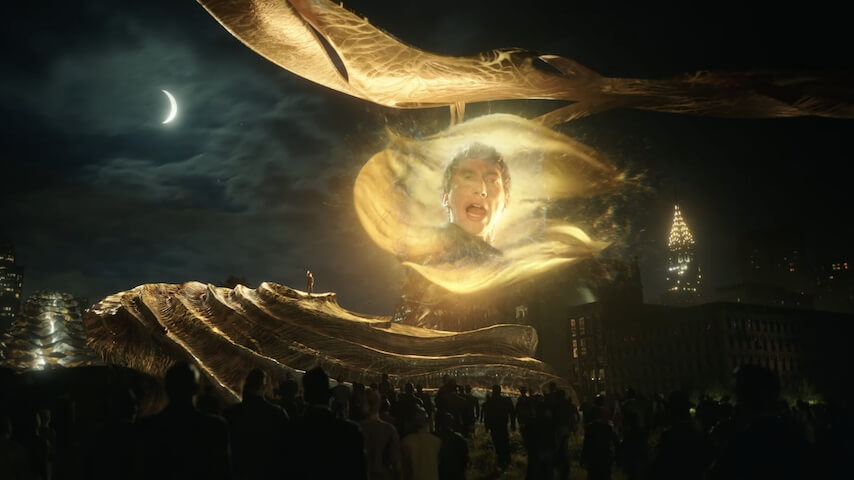Megalopolis sees Francis Ford Coppola go full Neil Breen
The kaleidoscopic piece of late-era filmmaking also resembles a Z-movie vanity project.
Photo: Lionsgate Films
Spoiler Space offers thoughts on, and a place to discuss, the plot points we can’t disclose in our official review. Fair warning: This article features plot details of Megalopolis.
It’s a great time for Old Man Cinema. Legendary filmmakers are leaning into their late eras in order to reckon with their own complicity (Martin Scorsese’s Killers Of The Flower Moon), their influential upbringing (Steven Spielberg’s The Fabelmans), their futile grasp at ever-slipping time (Víctor Erice’s Close Your Eyes), their action-spectacle death drive (Tom Cruise’s continued stuntwork), and their melancholy persistence (David Cronenberg’s The Shrouds). Francis Ford Coppola’s Megalopolis fits alongside this self-reflexivity, but with a liberating, damning caveat. Fully financed through his personal wealth, Coppola’s film doesn’t have to pretend to be anything it’s not, or answer to anyone. It doesn’t need a coherent plot, airtight ideas, or even a selling point beyond “Francis Ford Coppola’s latest movie.” It’s one from the heart, and nowhere else. The captivating, cloying result is like a Z-grade vanity project from a grade-A filmmaker. In some ways, Megalopolis fits alongside Neil Breen’s seminal 2012 so-bad-it’s-good piece of egosploitation Fateful Findings as a companion piece.
Megalopolis is the story of New Rome’s Cesar Catilina (Adam Driver), an idealistic architect playboy with a heart and mind (and eventually face) of gold, trying to build a utopia despite the corrupt, banal fools around him. He can literally stop time and has a monopoly on a nebulous super-material called Megalon, the latter of which helps him survive an assassination attempt and is the bedrock of his sci-fi urban renewal project. He’s won the Nobel Prize before we’re sure what’s going on. At least Coppola doesn’t deign to play Cesar himself.
Breen, a real-life architect who’s taken up Tommy Wiseau’s mantle, tends to cast himself as messianic mega-men raging against corruption in his self-funded fables. In Fateful Findings, he plays valiant truth-teller Dylan, who also has supernatural powers and a magic rock that helps him survive an attempted assassination.
